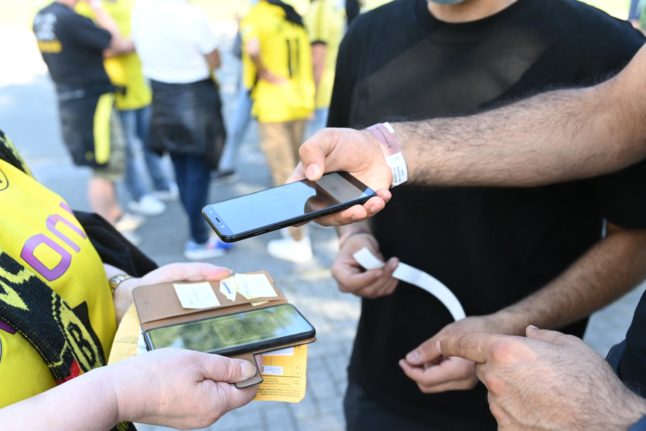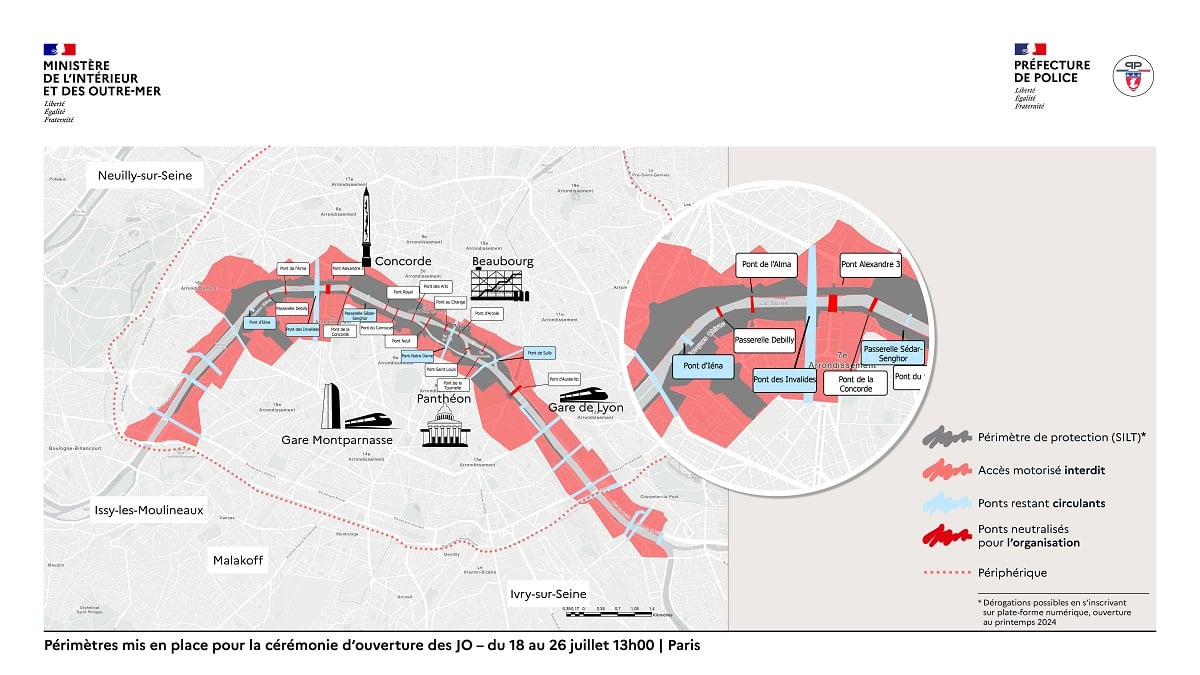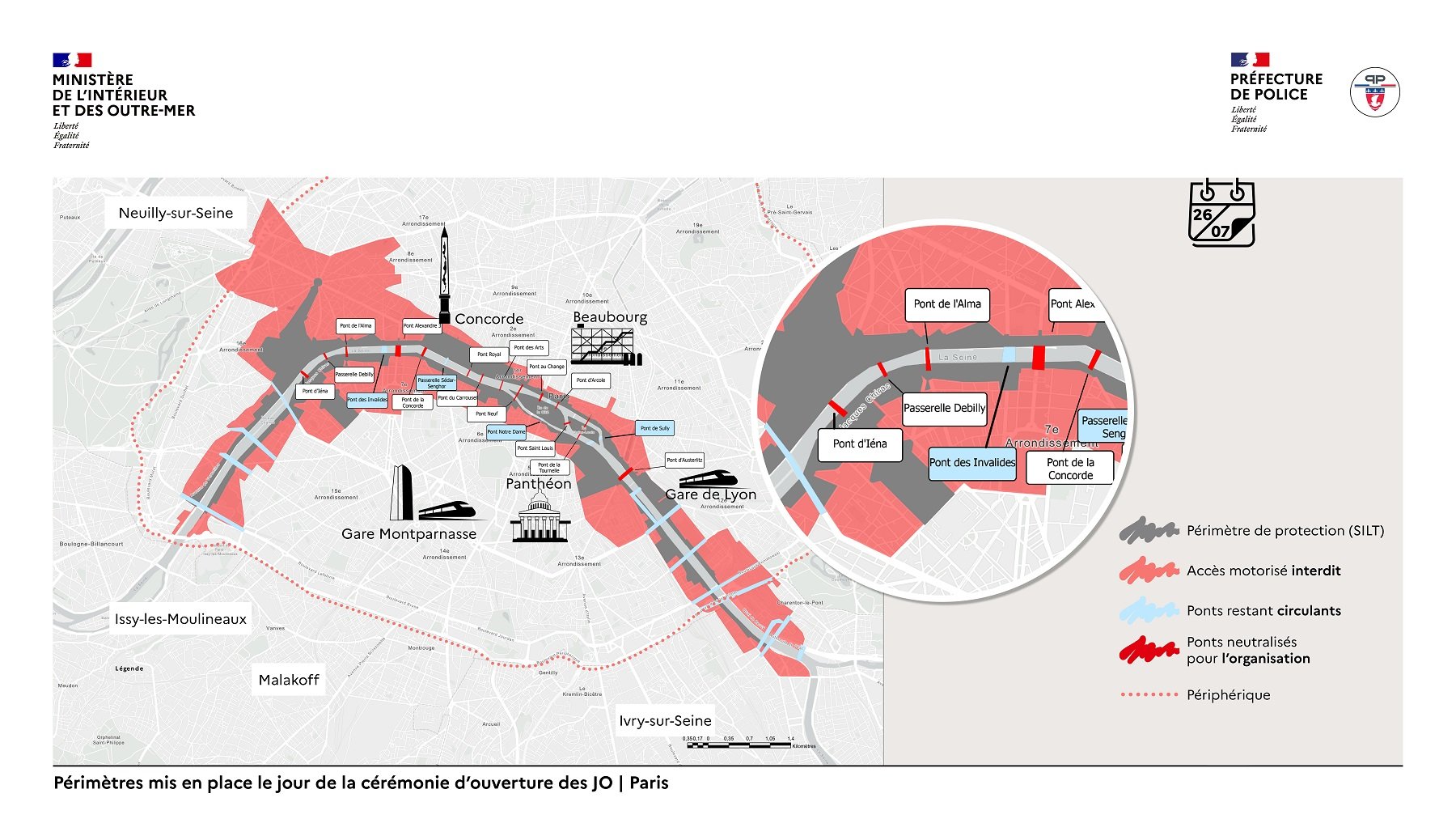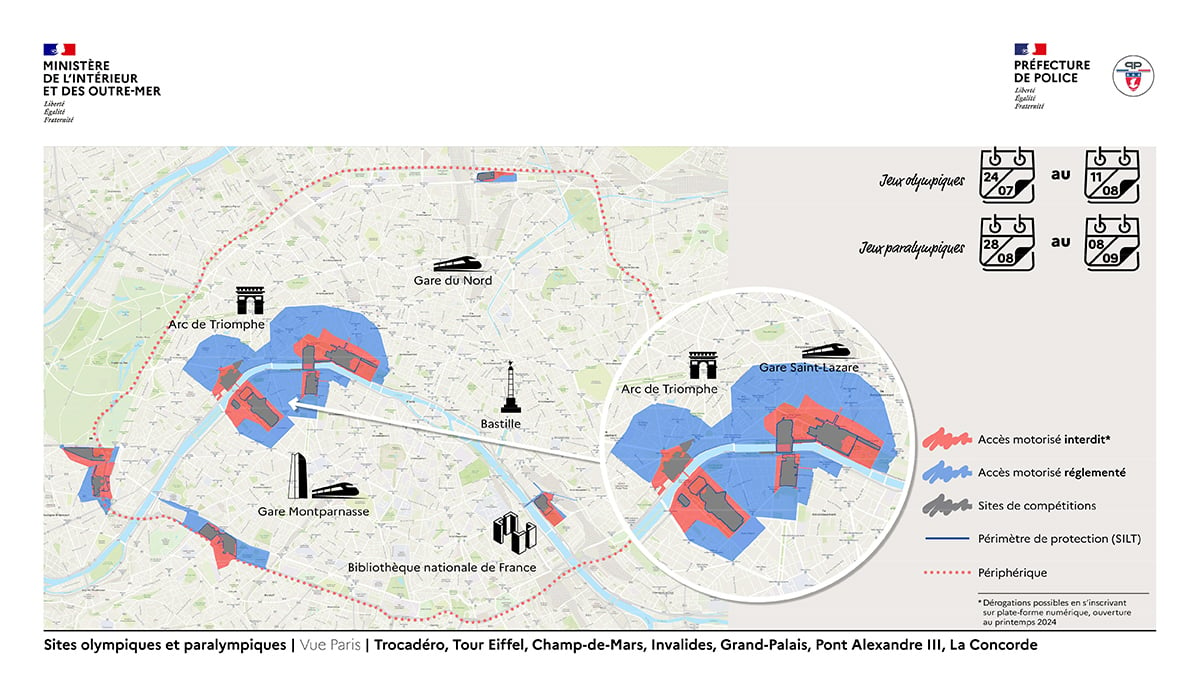“The very meticulous, very professional approach (from French authorities) gives us all the confidence that we can have this opening ceremony on the river Seine and that this opening ceremony will be iconic, will be unforgettable for the athletes, and everybody will be safe and secure,” Bach said in an exclusive interview with AFP at the IOC’s headquarters in Lausanne, Switzerland, on Friday.
The hugely ambitious ceremony on July 26 remains one of the biggest doubts about the Paris Olympics.
Instead of the traditional approach of parading through the athletics stadium at the start of the Games, teams are set to sail down the Seine on a flotilla of boats in front of up to 500,000 spectators, including people watching from nearby buildings.
There has been constant speculation that French authorities will have to move or adapt the ceremony due to security threats, with an attack on a concert hall in Moscow in March that was claimed by an offshoot of the Islamic State group raising further doubts.
French President Emmanuel Macron said last week that it could move to the national stadium, the Stade de France, although local organisers have always insisted this was not an option.
“Everybody is determined to have this opening ceremony on the river Seine … while at the same time looking at all the different scenarios,” Bach explained.
Bach said he was counting on the return of spectators at Paris 2024 to help “revive the Olympic spirit” after the Covid-affected last Games in Tokyo took place in empty stadiums.
Two disrupted editions would have meant “the Olympic Games and the Olympic values would have disappeared from the world’s attention for eight years. Eight years is too long a time and so then it would have been very difficult to revive the Olympic spirit,” he said.
Asked about the mood in France and criticism of the Games there, he said this was partly due to global uncertainty.
“It’s not only related to the Olympic Games. It’s part of our zeitgeist because we are living in uncertain times. And there are people who are sceptical. Some are even scared. Some are worried about their future,” said the German former fencer.
“And under these circumstances you can understand some questions and some criticism.”






 Please whitelist us to continue reading.
Please whitelist us to continue reading.
Member comments